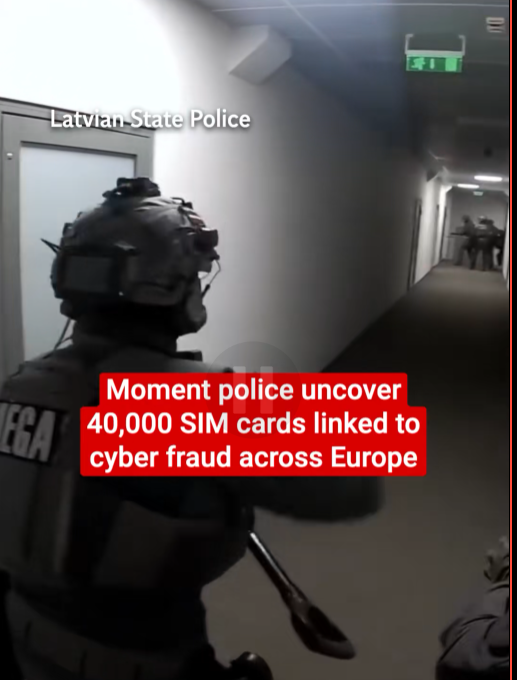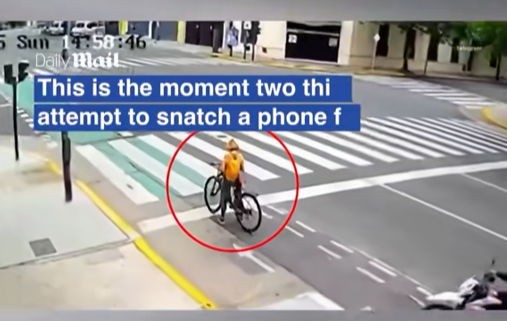In an operation that feels straight out of a high-stakes crime thriller, police in Latvia have uncovered a massive cyber fraud network spanning multiple European countries — seizing over 40,000 SIM cards and a warehouse filled with high-tech equipment used for large-scale scams. The discovery has been described as one of the biggest cybercrime busts in recent European history.
Bodycam footage released by the Latvian State Police shows heavily armed officers storming a nondescript office building in Riga. Behind its plain exterior, investigators found an intricate web of illegal activity — a digital command center that had been secretly orchestrating widespread cyber fraud operations.
Authorities say the criminal group used the tens of thousands of SIM cards to carry out “phishing” and “smishing” attacks — where victims receive fraudulent text messages designed to steal personal or banking information. The sheer number of cards allowed the scammers to send out millions of fake messages, impersonating banks, delivery services, and even government agencies across Europe.
“The scale of this operation is staggering,” said one official from Europol. “This wasn’t just a local scam. This was a coordinated digital assault targeting multiple countries at once.”
Investigators found racks of SIM cards connected to specialized modems and servers, designed to automate message sending and hide the location of the operators. In addition to the SIM cards, the raid uncovered hard drives, encrypted laptops, and cash — all now being analyzed as part of the investigation.
The operation involved international cooperation between Latvian authorities, Europol, and cybersecurity units from several European nations, including Germany, France, and the Netherlands. Officials believe the fraud ring may have caused millions of euros in financial losses.
One cybercrime expert explained how operations like this work: “They buy thousands of prepaid SIM cards, connect them to software that can send thousands of messages per minute, and create fake websites that look identical to official ones. Victims think they’re logging into their bank accounts — but they’re actually handing over their details.”
The breakthrough came after months of digital surveillance and data tracking. Investigators had traced unusual mobile traffic patterns and identified a spike in coordinated scam campaigns, all linked back to Latvia. Once the evidence was solid, the SWAT-style raid was launched.
Several suspects were arrested during the operation, including two alleged masterminds believed to be linked to organized crime networks operating out of Eastern Europe. Police say more arrests are expected as the case expands across borders.
The footage of the raid has gone viral online, with viewers praising the officers’ precision and teamwork. “It’s incredible to see real cybercriminals finally being stopped,” one commenter wrote. Another added, “For every scam text we get, there’s a hidden operation like this behind it — and now one of the biggest is gone.”
Authorities say the bust is just the beginning. With technology-driven crime on the rise, this operation sends a clear message: even in the shadows of the digital world, justice still finds its way through the code.











Leave a Reply